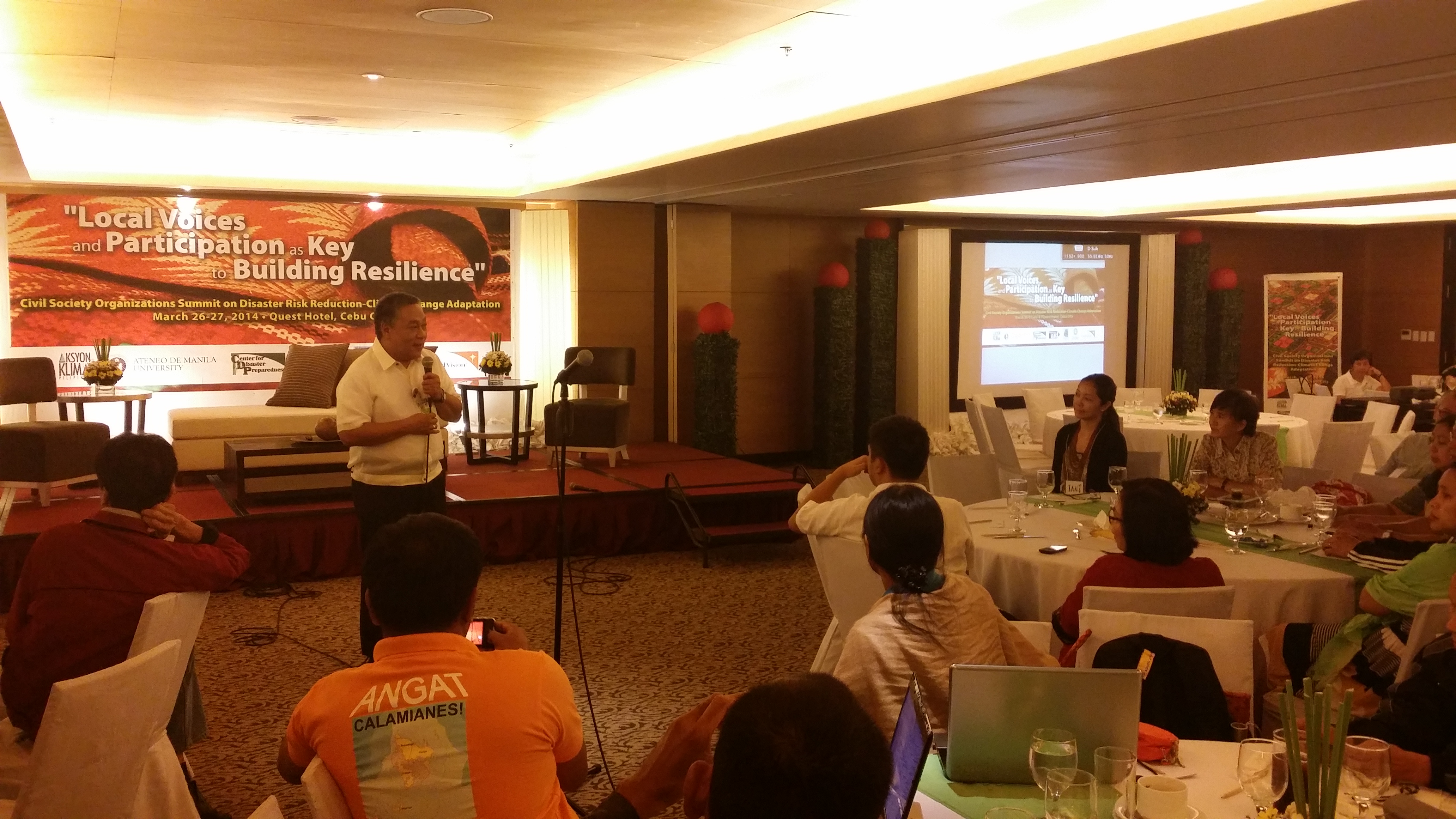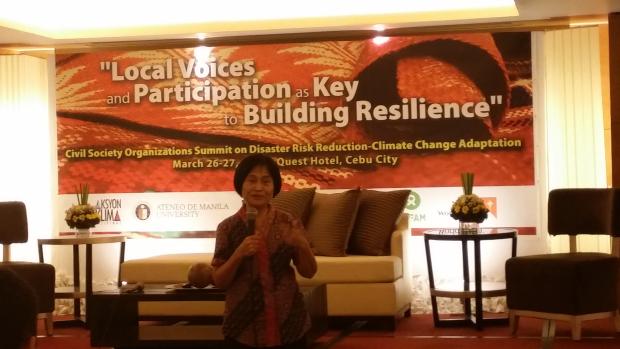Civil society groups raise call to enhance disaster mitigation programs

Cebu Gov. Hilario Davide III welcome the participants of the Civil Society Organizations Summit on Disaster Risk Reduction-Climate Change Adaptation in Quest Hotel, Wednesday afternoon. (CDN PHOTO/ MARIAN Z. CODILLA)
About a hundred civil society groups aired the need for both the national government and the private sector to address the gaps in disaster preparedness and mitigation programs in the country.
“Supertyphoon Yolanda showed the gaps in the rehabilitation efforts of the government that need to be addressed, including its implementation of the Philippine Disaster Risk Reduction and Management Act of 2010,” said Adelina Sevilla Alvarez, lead convenor of the network Disaster Risk Reduction Network Philippines (DRRNetPhils).
The network is one of four civil society organizations representatives in the National Disaster Risk Reduction and Managemente Council (NDRRMC). Zenaida Delica Willison, CBDRRM Exemplar said in her keynote speech that poverty reduction results in a decrease of social vulnerability and later disaster resilience. “Reduction of risks is embedded as an essential in reducing vulnerability.
“We have to increase the capacities of nations and communities. We have been sleeping in the reduction of vulnerability because we have not addressed poverty yet,” Willison said.
The summit held at Quest Hotel highlighted the experiences of communities and civil society groups in relief and rehabilitation efforts in the wake of the devastation caused by supertyphoon Yolanda in the Visayas late last year.
Maria Cagay, deputy executive director of the Center of the Disaster Preparedness echoed the importance of building the capacities of the communities themselves, the first responders during disasters.
“Typhoon Yolanda showed how the varying capacities of communities and local government units were clearly a factor in saving lives. It is therefore imperative for communities, LGUs, the private sector, media and other sectors to work together towards resilience,” Cagay said.
Disclaimer: The comments uploaded on this site do not necessarily represent or reflect the views of management and owner of Cebudailynews. We reserve the right to exclude comments that we deem to be inconsistent with our editorial standards.

